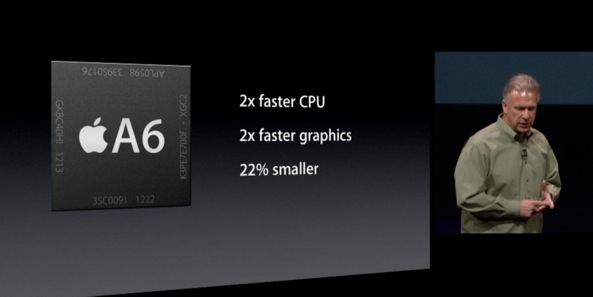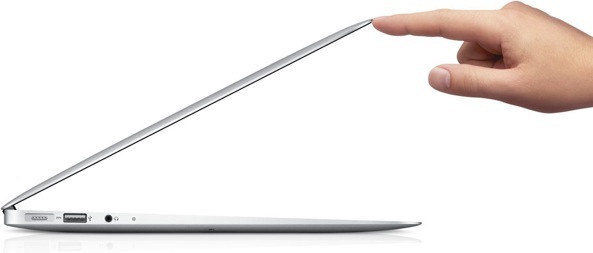Taiwan Semiconductor Manufacturing Company (TSMC), the world’s largest dedicated independent semiconductor foundry with its headquarters located in the Hsinchu Science Park in Hsinchu, Taiwan, will according to an analyst’s research note begin making next-generation quad-core mobile chips for iPhones, iPod touches and iPads sometime in 2014. We heard before that TSMC has a “good chance” of winning Apple’s chip biz in 2014 and this report reaffirms the notion…
According to a report by Chinese Economic News Service (via MacRumors) out this morning, Citigroup Global Markets analyst J.T. Hsu believes TSMC will become the sole supplier of quad-core mobile chips for iOS devices that should be fabbed on TSMC’s 20nm process:
Citigroup Global Markets’ market research fellow, J.T. Hsu, pointed out that Apple began verifying TSMC’s 20nm process in August this year and may begin risk production in November with the process.
Volume production is expected to start in the fourth quarter of 2013, raising the possibility that TSMC will hike capital expenditure to US$11-12 billion in 2013 and 2014.
Apple is thought to have opted for TSMC because of its “unmatched technological advance on 20nm process”. Currently, Apple’s chips are fabbed on Samsung’s 32nm CMOS process.
Moving to a more precise manufacturing process results in smaller transistors that reduce the chip’s footprint, yielding less heat dissipation, more efficient energy consumption and faster speeds since electrons cover shorter distances.
What’s really, really interesting is this bit:
Hsu estimated Apple to design quad-core processors into iPad, iTV and even Macbook. iPhones will be still powered by duo-core processors to highlight its low power consumption merit.
The report goes on to note that iPhones will be still powered by duo-core processors due to power consumption concerns.
Now, Apple’s long been rumored to be looking to make a switch from Intel to its own ARM-based processors for either the entire MacBook lineup or just Airs, or perhaps a brand new Mac notebook based on CPU blueprints from London-based ARM Holdings plc.
Since ARM leads the industry in terms of power efficiency, an ARM-based Apple notebook would feature an all-day long battery. Currently, your MacBook Air’s battery would take you only halfway through your workday, as opposed to iPads that boast a ten-hour battery.
Is Apple developing an ARM-based MacBook with all-day batter?
The news likely means that Apple is moving to drop Samsung, currently an exclusive manufacturer of Apple-designed A4/A5/A6 chips found in iOS devices.
Samsung is producing these chips in its Austin, Texas facility and recently announced an investment of $4 billion to renovate the facility in order to boost production of ARM-based chips for Apple. Apple accounts for an estimated 8.8 percent of Samsung’s revenue.
Yesterday, news broke that Apple poached a star Samsung chip designer who now works for Apple’s in-house semiconductor team. Apple’s been hiring chip experts left and right lately, indicating its desire to plunge much deeper into custom chip design.
Meanwhile, Samsung isn’t standing still and has been doubling down on silicon engineering in order to better compete with Apple. Just recently, Samsung ponied up $310 million for the mobile business of Cambridge Silicon Radio PLC, based out in Cambridge, United Kingdom.
In the fierce battle for smartphone supremacy, custom chip designs are increasingly becoming the main hardware differentiator versus other vendors who just take off-the-shelf chips, without adapting them to their own needs (which doesn’t come cheap).
For example, the A6 chip inside the iPhone 5 owes much of its speed and power efficiency to heavy customizations on Apple’s part. In fact, it files as the world’s first phone powered by ARM’s Cortex A15 CPU platform.
According to a teardown analysis, the A6 package boasts two ARM-based Cortex-A15 cores and three PowerVR graphics units. Geekbench and SunSpider benchmarks suggest it’s the fastest mobile chip currently on the market.
The company has been bolstering its internal team of semiconductor experts over the years by acquiring fabless chip makers PA Semi, Intrinsity, Anobit and recently smart sensor maker AuthenTec.
What do you think, will Apple be better off taking its chip contract to TSMC?
Moving to a different fabbing process equals to a brain transplant.
Will Apple regret the decision?


